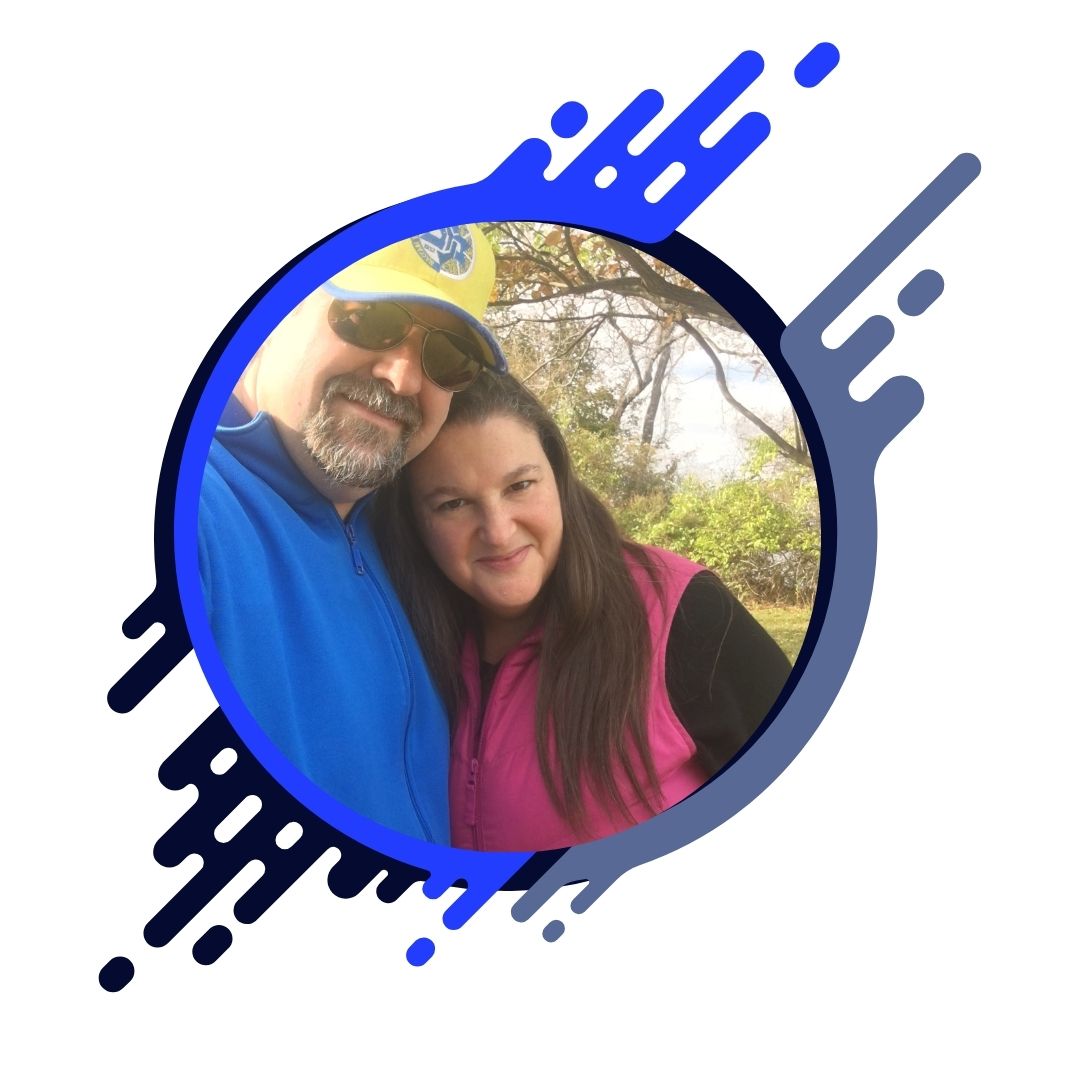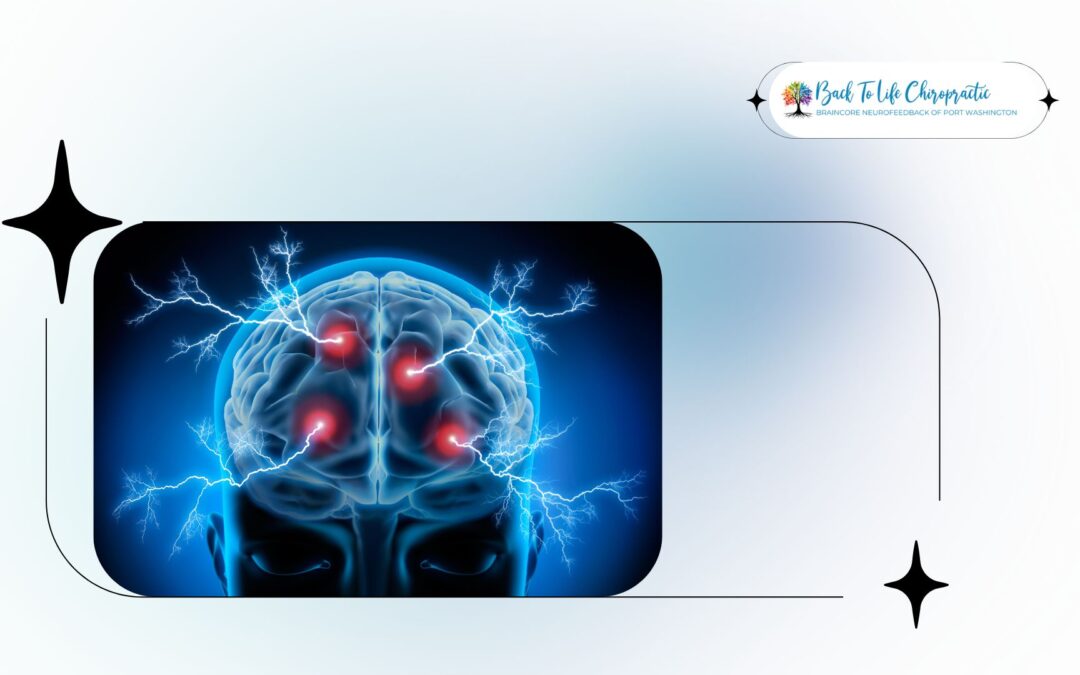
Drs. Michael Shwartzstein and Robyn Croutch bring over 45 years of experience to their chiropractic practice, focusing on holistic care for brain and body health. Inspired by a close friend’s son with ADHD, they integrated BrainCore Neurofeedback, achieving life-changing results for patients with autism, anxiety, and attention challenges. Dr. Croutch holds Dr. Amen’s Brain Health Professional Certification, and they also use thermography for early health detection. Together, they provide compassionate, comprehensive care for whole-body wellness.
Attention Deficit Hyperactivity Disorder (ADHD) and anxiety often go hand in hand. For many individuals, and especially parents of children with ADHD, it can be challenging to untangle the symptoms of one from the other. But understanding the connection between these two conditions is the first step toward managing them effectively and empowering yourself or your loved ones to thrive.
Whether you’re a parent seeking answers for a child with ADHD, an adult navigating these challenges, or someone exploring holistic health approaches, here’s what you need to know.
What is the Relationship Between ADHD and Anxiety?
ADHD and anxiety are each unique conditions with their own set of symptoms. However, research shows that the overlap between the two is significant. Studies estimate that 30-50% of people with ADHD also have an anxiety disorder—a statistic that underscores how closely linked these two conditions can be.
Why Do ADHD and Anxiety Often Co-Exist?
The co-occurrence of ADHD and anxiety can happen because of several reasons:
- Shared Neurological Roots: Both ADHD and anxiety are linked to differences in brain activity, particularly in regions governing focus, impulse control, and mood regulation.
- ADHD-Related Challenges: Living with ADHD can lead to difficulties at school, work, or in relationships. This constant struggle to meet expectations or manage daily tasks may trigger chronic worry or fear, leading to anxiety.
- Genetics: ADHD and anxiety often run in families. If you or your child have ADHD, it may not be surprising that anxiety could also emerge due to shared genetic factors.
Understanding why these conditions often appear together can help break down feelings of frustration or blame and instead foster greater self-awareness and compassion.
Recognizing the Overlap in Symptoms
Many symptoms of ADHD and anxiety can overlap, making them difficult to differentiate. By identifying key patterns, it’s possible to get the right help:
- Restlessness
ADHD-related hyperactivity can feel very similar to the physical restlessness often seen in anxiety.
- Difficulty Concentrating
While ADHD individuals struggle with attention due to distraction or impulsiveness, anxiety can impair focus by overwhelming the mind with worries.
- Sleep Difficulties
Both conditions can make falling or staying asleep a challenge, though for different reasons. ADHD may cause racing thoughts, while anxiety may bring on nighttime fears or overthinking.
If you or your child experience these overlapping symptoms, consider discussing them with a qualified professional to determine whether they stem from ADHD, anxiety, or both.
What Can You Do? Holistic Strategies to Support ADHD and Anxiety
While professional guidance is critical in dealing with ADHD and anxiety, incorporating holistic approaches can provide additional relief and help improve overall well-being.
1. Create a Routine
Structure is a vital tool for managing both ADHD and anxiety. Daily routines provide predictability and reduce feelings of overwhelm, helping the brain transition more fluidly between tasks.
2. Mindfulness Practices
Mindfulness-based approaches, such as meditation, yoga, or breathing exercises, can calm racing thoughts associated with ADHD and alleviate the physical symptoms of anxiety. Even 5–10 minutes per day can make a difference.
3. Nutrition Matters
A brain-healthy diet that includes omega-3 fatty acids, whole grains, lean proteins, and fresh vegetables has been shown to boost focus and mood stability. Avoiding excess sugar and caffeine can also help minimize hyperactivity and anxiety.
4. Cognitive Behavioral Therapy (CBT)
CBT is a widely recommended therapy for both ADHD and anxiety. It helps identify negative thought patterns, teaches coping techniques, and strengthens emotional resilience.
5. Prioritize Sleep
Getting consistent, quality sleep is essential for managing both conditions. Establishing a bedtime routine, reducing screen time, and creating a calm sleep environment can help improve sleep quality over time.
6. Support and Community
Having a support system is incredibly valuable. For parents of children with ADHD, connecting with other families facing similar challenges can provide not only emotional relief but also practical tips. Adults with ADHD may benefit from joining online communities or local support groups.
Seeking Professional Support
While holistic approaches can be incredibly effective, it’s also essential to seek professional advice, particularly if symptoms of ADHD or anxiety are interfering with daily life. A specialist can:
- Provide proper evaluations.
- Offer insights on whether medication or therapy may be helpful.
- Tailor strategies to your (or your child’s) unique needs.
Remember, ADHD and anxiety are common and manageable conditions. With the right combination of support, education, and resources, thriving is well within reach.
Final Thoughts
Understanding the connection between ADHD and anxiety is a powerful first step toward better managing these challenges. By focusing on solutions—from daily routines to mindfulness and professional care—you create a world of opportunities for growth and resilience.
If you’re a parent of a child with ADHD or an adult navigating these conditions yourself, know that you’re not alone. Each step you take to understand and support these challenges brings you closer to empowerment and balance.
For more guidance and resources, stay connected with our blog. Together, we can build a community of understanding, strength, and support.


0 Comments